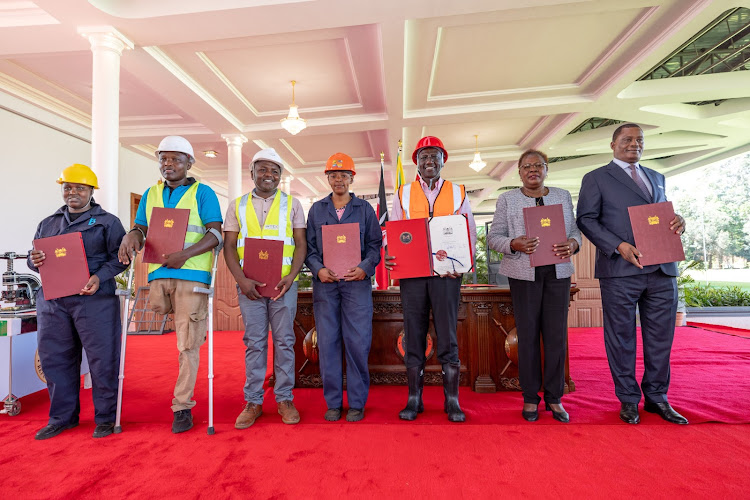President William Ruto on Tuesday assented to the Affordable Housing Bill, after it was passed by Parliament.
The signing ceremony was held at State Nairobi.
This now means that Kenyans will from this month pay the housing levy.
The 1.5 per cent tax from both the employer and the employee will take effect at the end of the month.
Parliament approved the controversial bill that was vehemently opposed by Opposition lawmakers. The Azimio lawmakers termed the legislation illegal and unconstitutional.
The Senate passed it last Tuesday, with a raft of amendments, following its passage by the national assembly.
However, the National Assembly on Thursday endorsed the Senate’s amendments, essentially escaping the mediation route that could have derailed the Bill.
The Bill establishes a framework for the collection of the affordable housing levy and implementation of the affordable housing programmes.
It also establishes accountability mechanisms including a requirement that the Board shall prepare a five–year investment programme and an annual investment programme, which shall be approved by Cabinet and shall consequently be tabled in Parliament.
The investment programmes shall guide the allocation of funds for implementation of the affordable housing programmes.
Further, the Bill defines the role of County Governments in affordable housing and provides for establishment of the County Affordable Housing Committees to advise governors on affordable housing programmes within their counties.
It also provides for the eligibility criteria and application procedure for an affordable housing unit.
The courts had last month abolished the levy but the Kenya Kwanza administration moved to have it back through legislation.
An appellate court on January 26 rejected the government’s bid to continue collecting the levy under the tax law.
Speaking in Bomet on Saturday, President Ruto said he would sign the bill to pave way for the deduction of the housing levy.
The President highlighted that the affordable housing project will not only provide employment opportunities for young people in the country but also ensure there is sufficient land available for agriculture and food production.
“Housing is going to give us jobs for our young people, give us decent living conditions for our people, is going to assist us in making sure that we have land for food production and is also going to make sure that we grow our manufacturing sector,” the President said.
He added: “That is the work I will do on Monday because we are in agreement with the court to have legislation that will anchor the affordable housing programme into law.”



